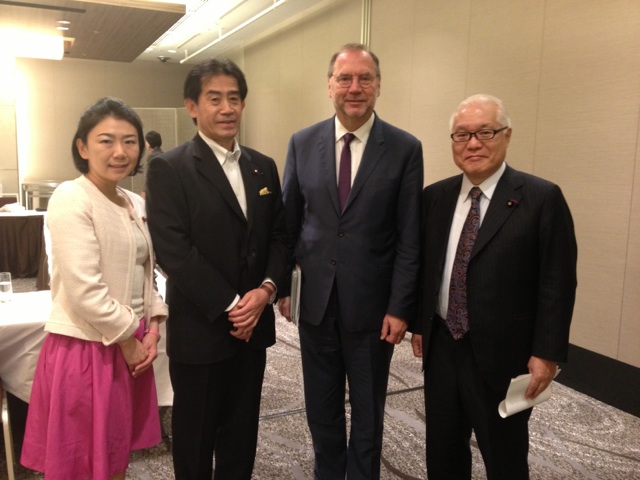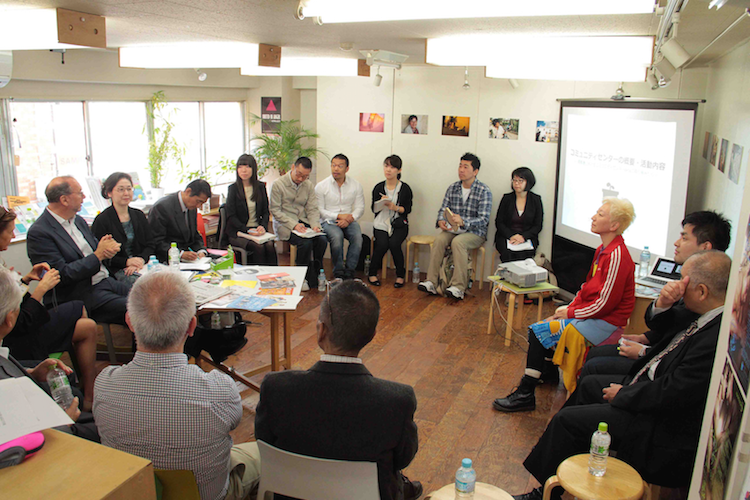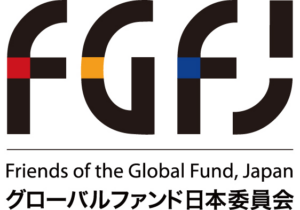
Piot was at the forefront of the discovery of the Ebola virus in 1976 and in the global struggle against HIV/AIDS that began in the 1980s. He was the first person to head UNAIDS after it was founded in 1995, and has continued to lead the fight against communicable disease since retiring from that post in 2008. Piot is considered to be one of the leading figures in convincing the international community to view AIDS not only as a medical issue but as an issue that affects the security and economic interests of nations as well, and has strengthened the global support for combatting this deadly disease.
During his meetings in Japan, the Ebola outbreak was in the headlines. He described how the current outbreak is very different from previous outbreaks because of what can be called a perfect storm: The three countries in West Africa where the virus is most widespread suffered from long civil wars, corrupt rule, and a lack of health systems, aggravated by a very slow response that took eight months from first detection to the declaration of a public health emergency. This latest outbreak of Ebola prompted a resolution from the UN Security Council—only the second time in history that it has addressed a public health emergency, the first being the HIV/AIDS pandemic. In an age of globalization, border control is difficult, so countries need to have medical and nursing personnel prepared to handle epidemics, but more importantly, to bring the outbreak in West Africa under control.

Piot also visited akta, an HIV/AIDS information center based in Shinjuku 2-chome, an area of Tokyo known as being home to a large LGBT community. Piot met with representatives from akta, from a support group for Japanese people who are HIV positive, and from other AIDS-related NPOs, as well as researchers in the field. Piot emphasized the importance of the community approach and how often that tends to get forgotten behind biomedical research and policies. He shared with those at the meeting that he is often disturbed to hear international organizations and professionals saying how the end is in sight for AIDS because it is not true, and he cited examples of increasing numbers of infections in London and elsewhere.
